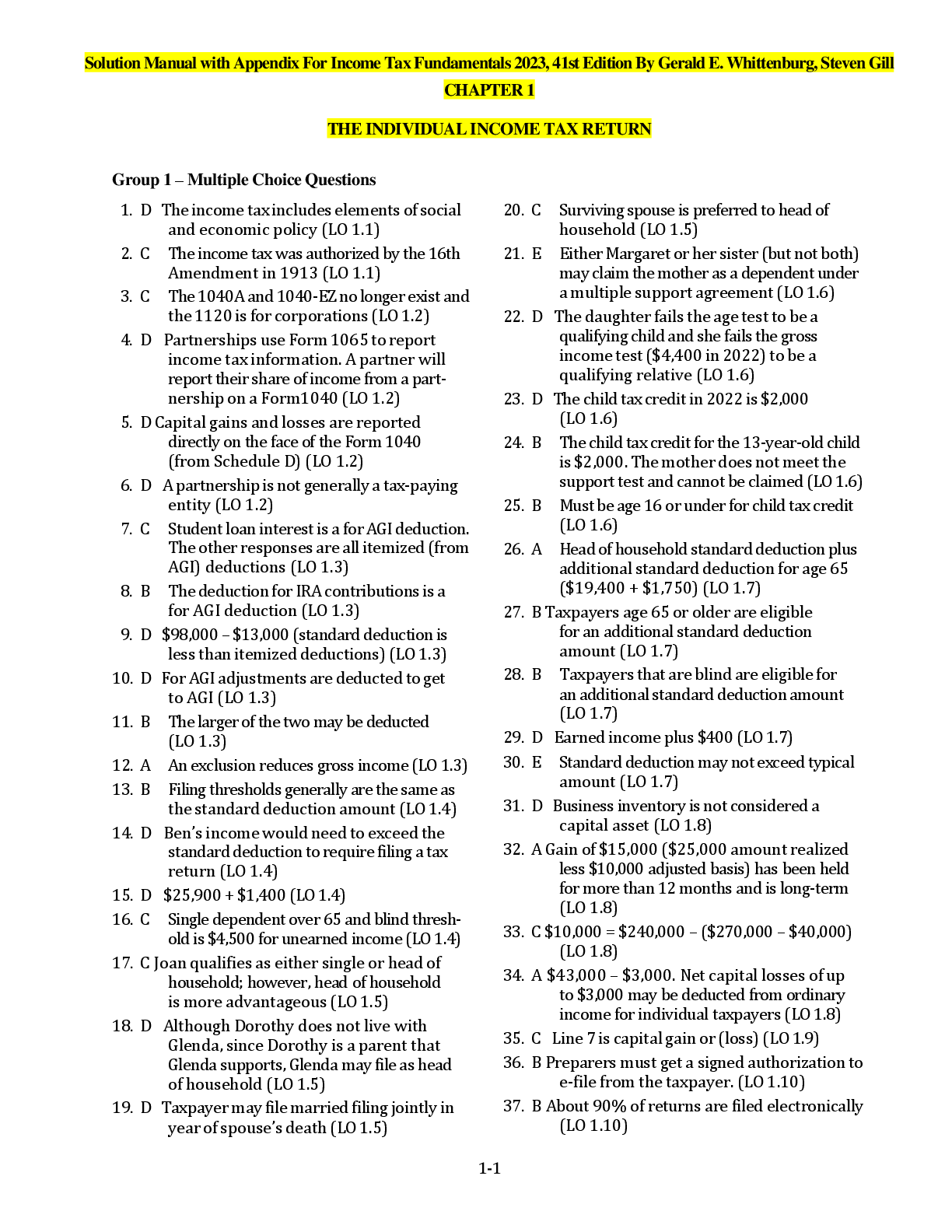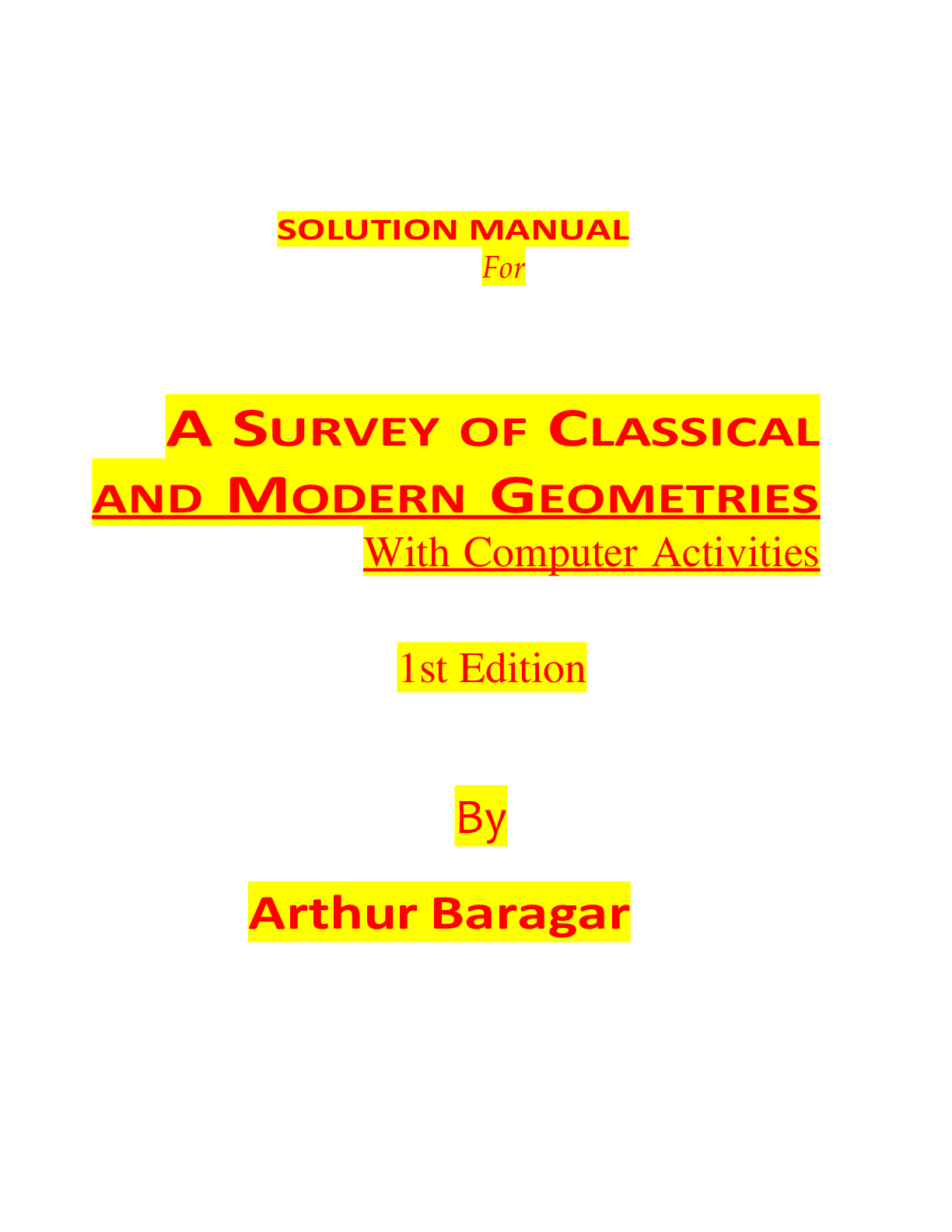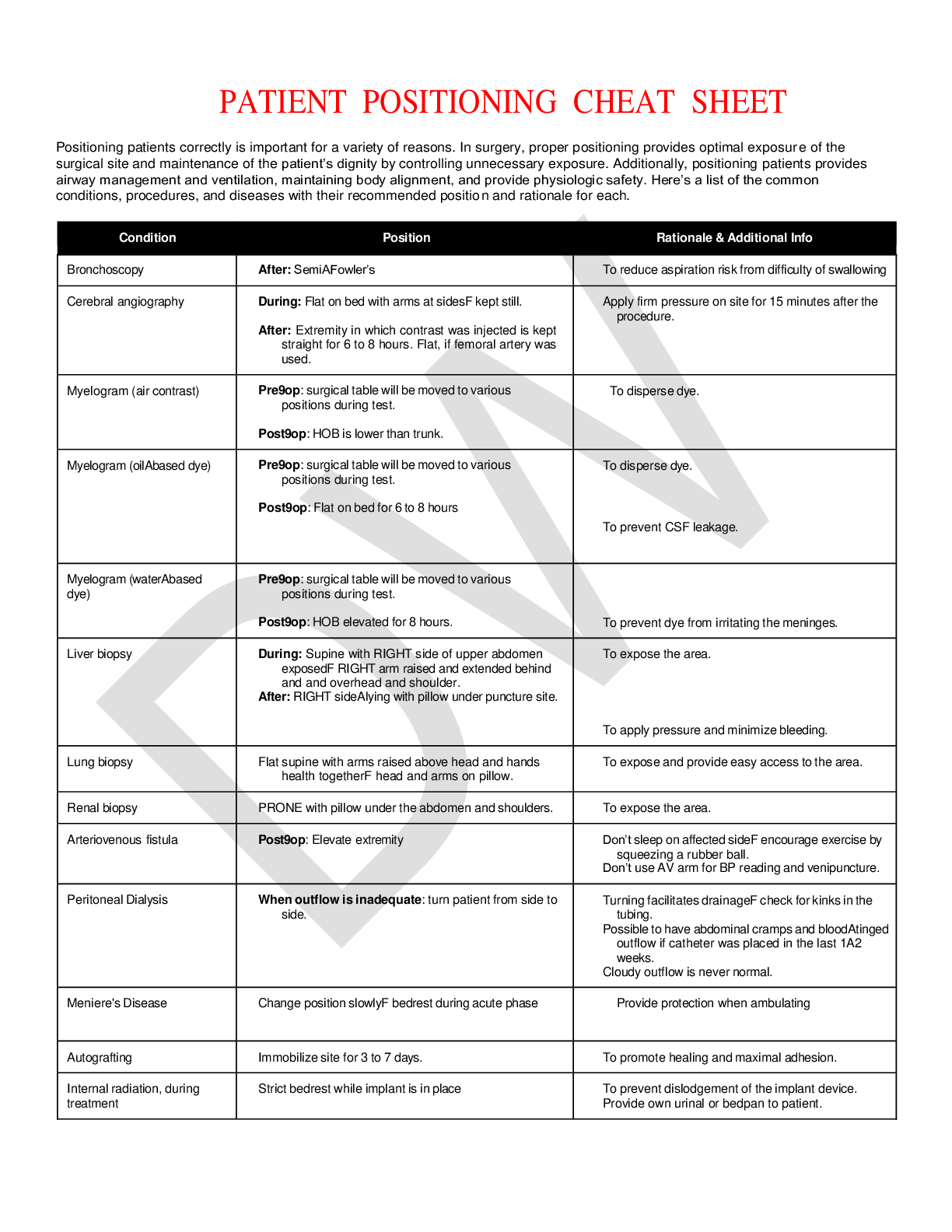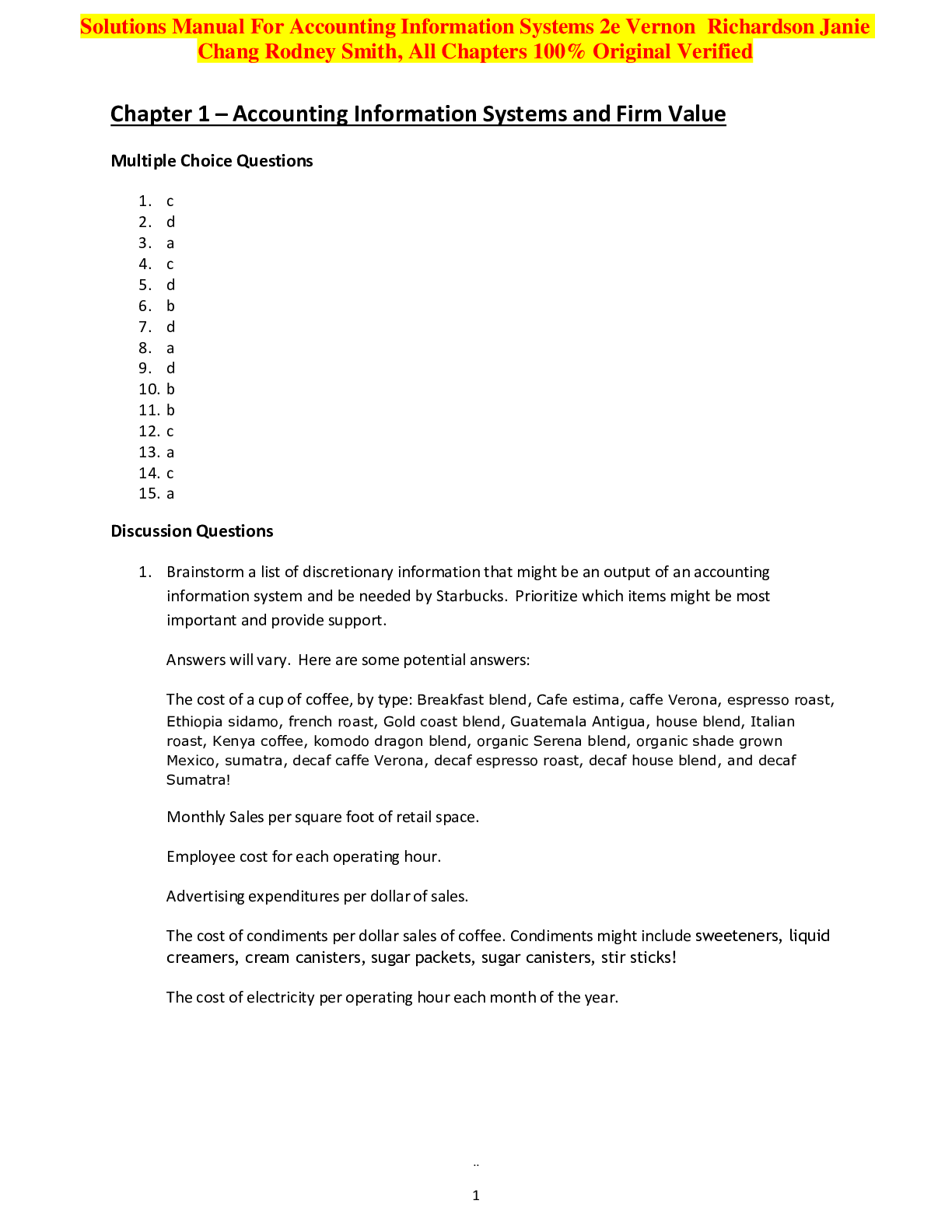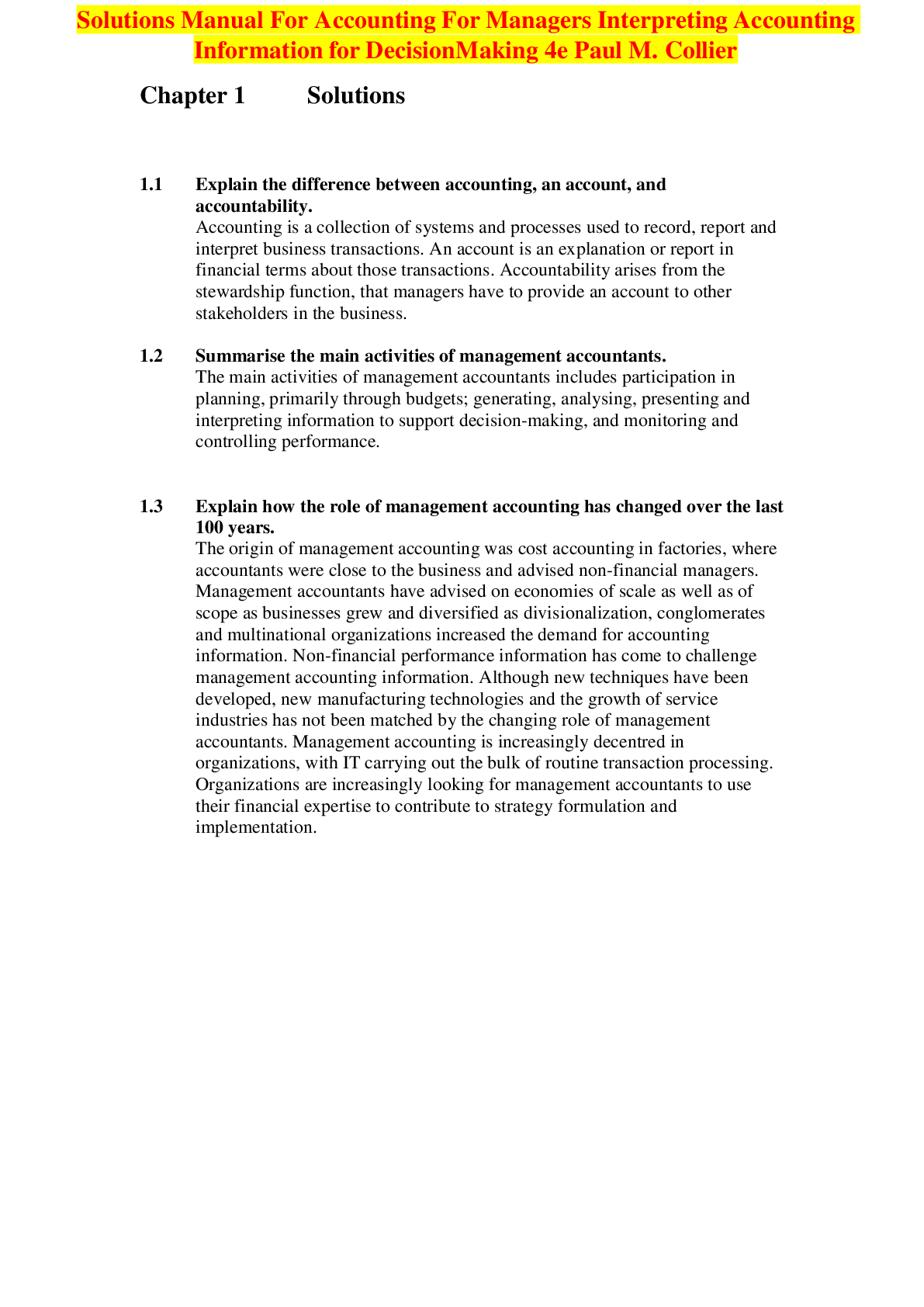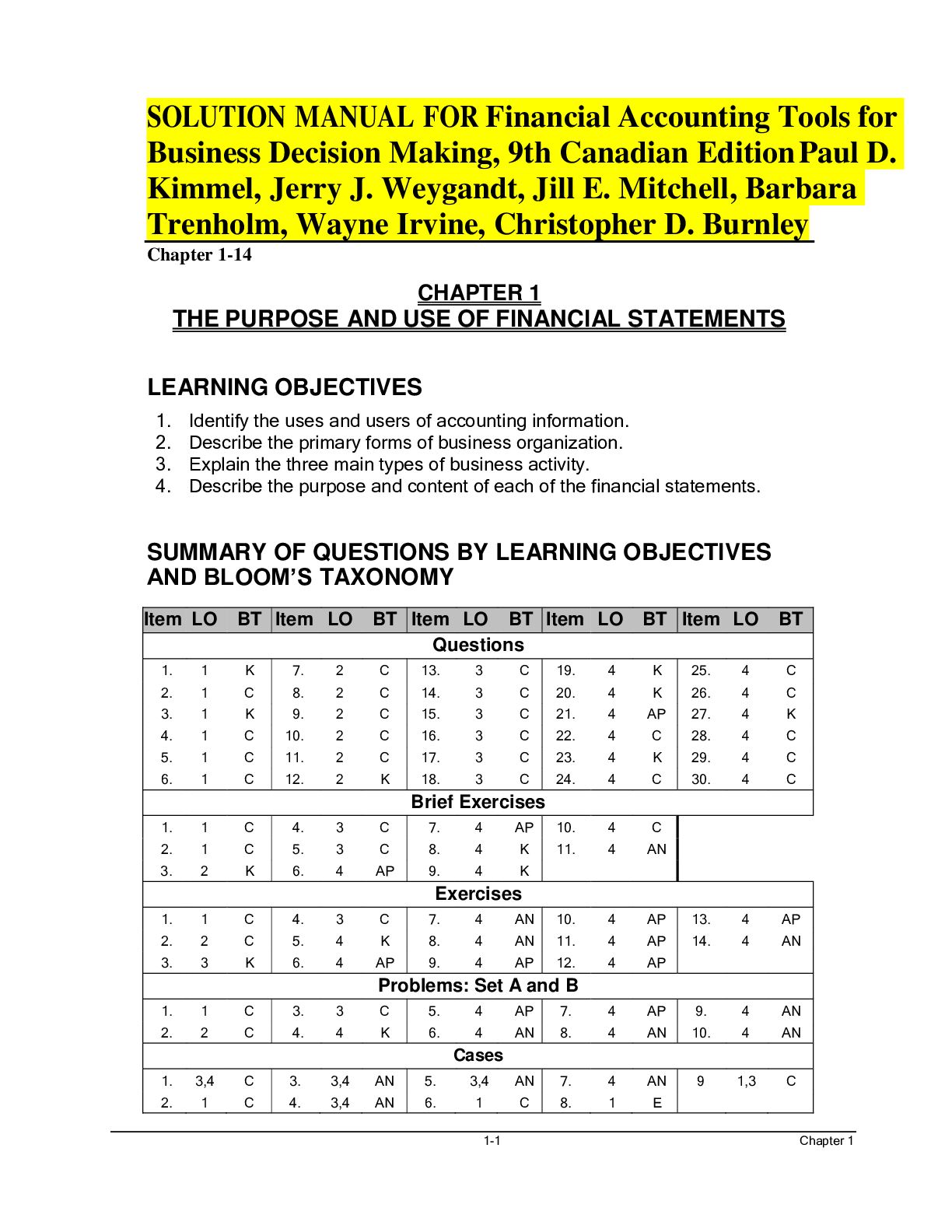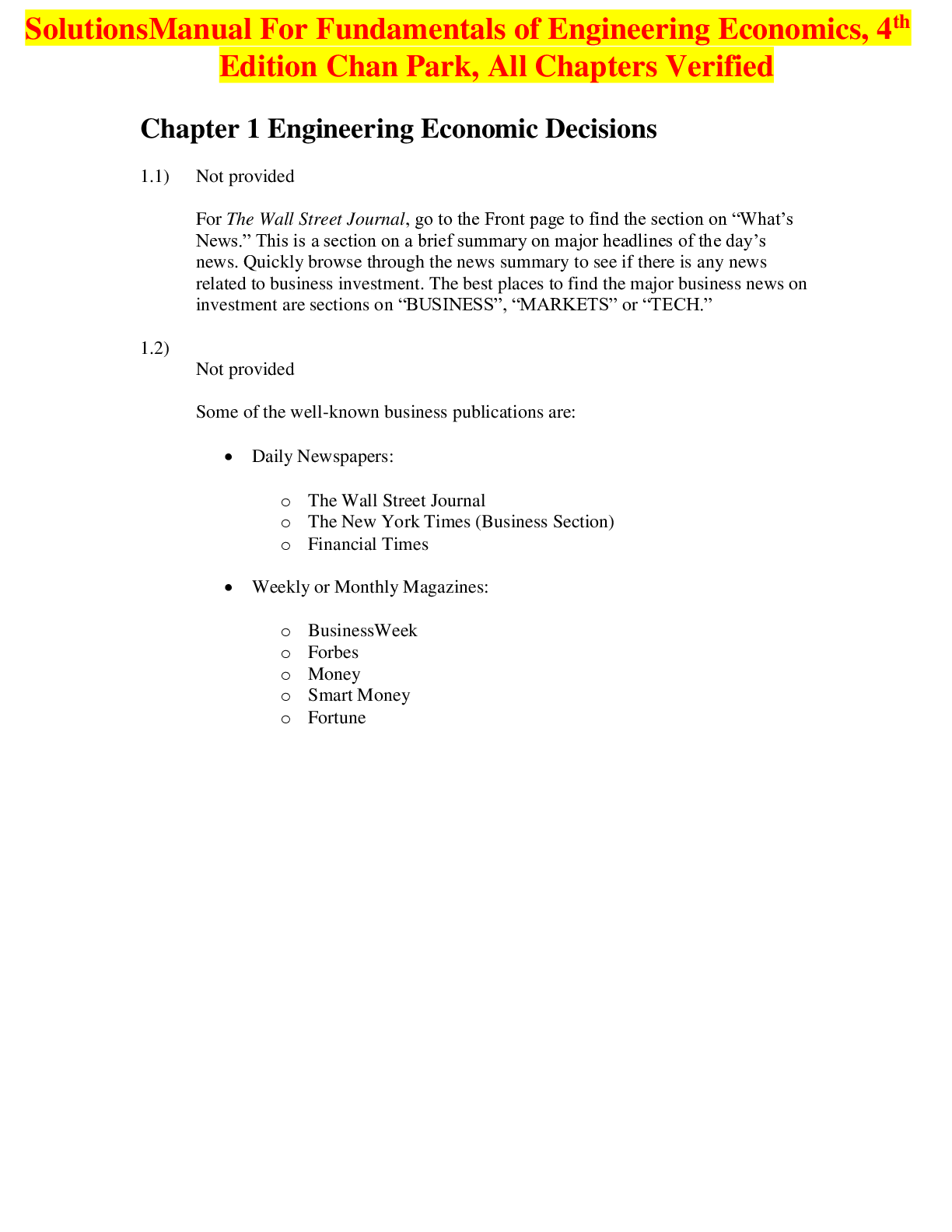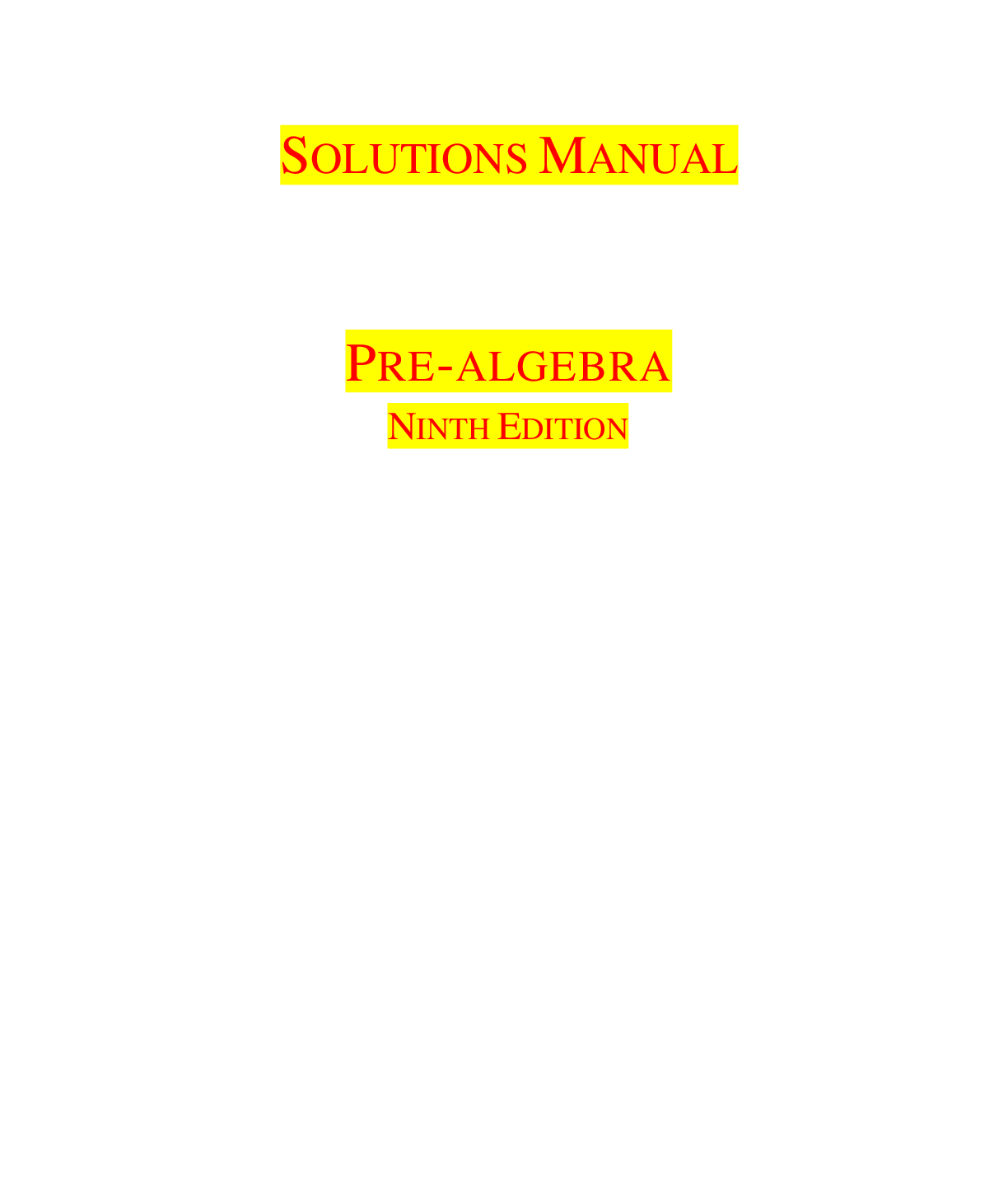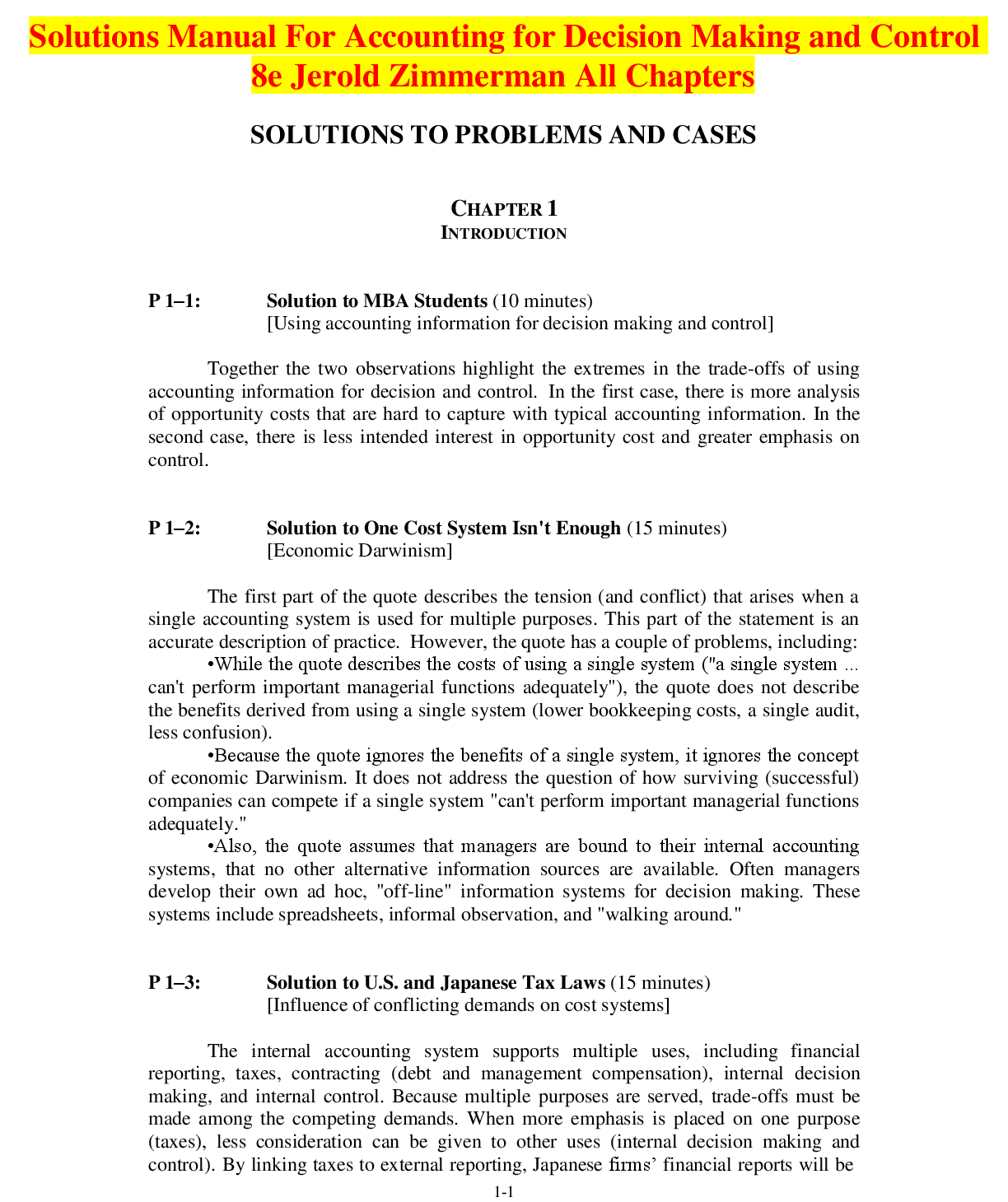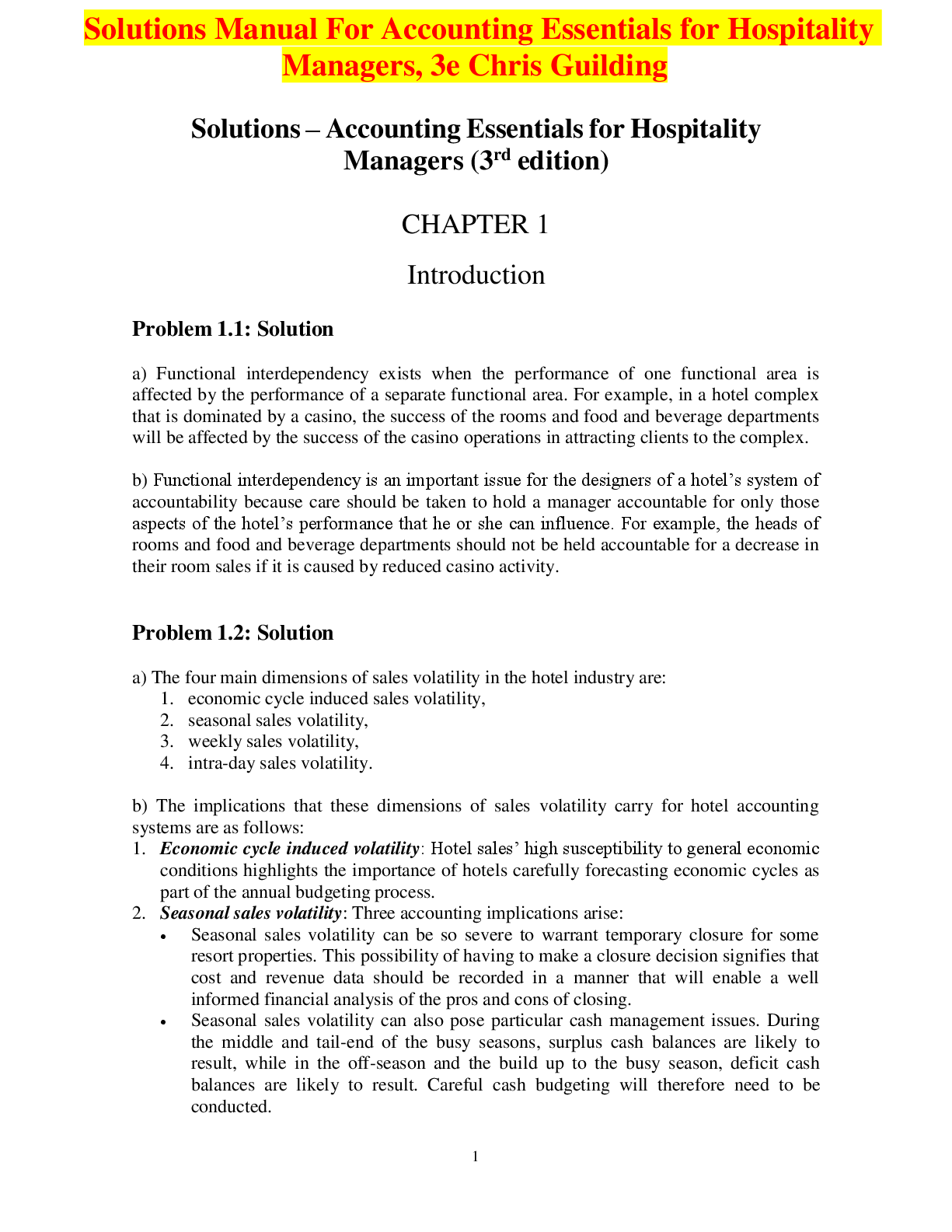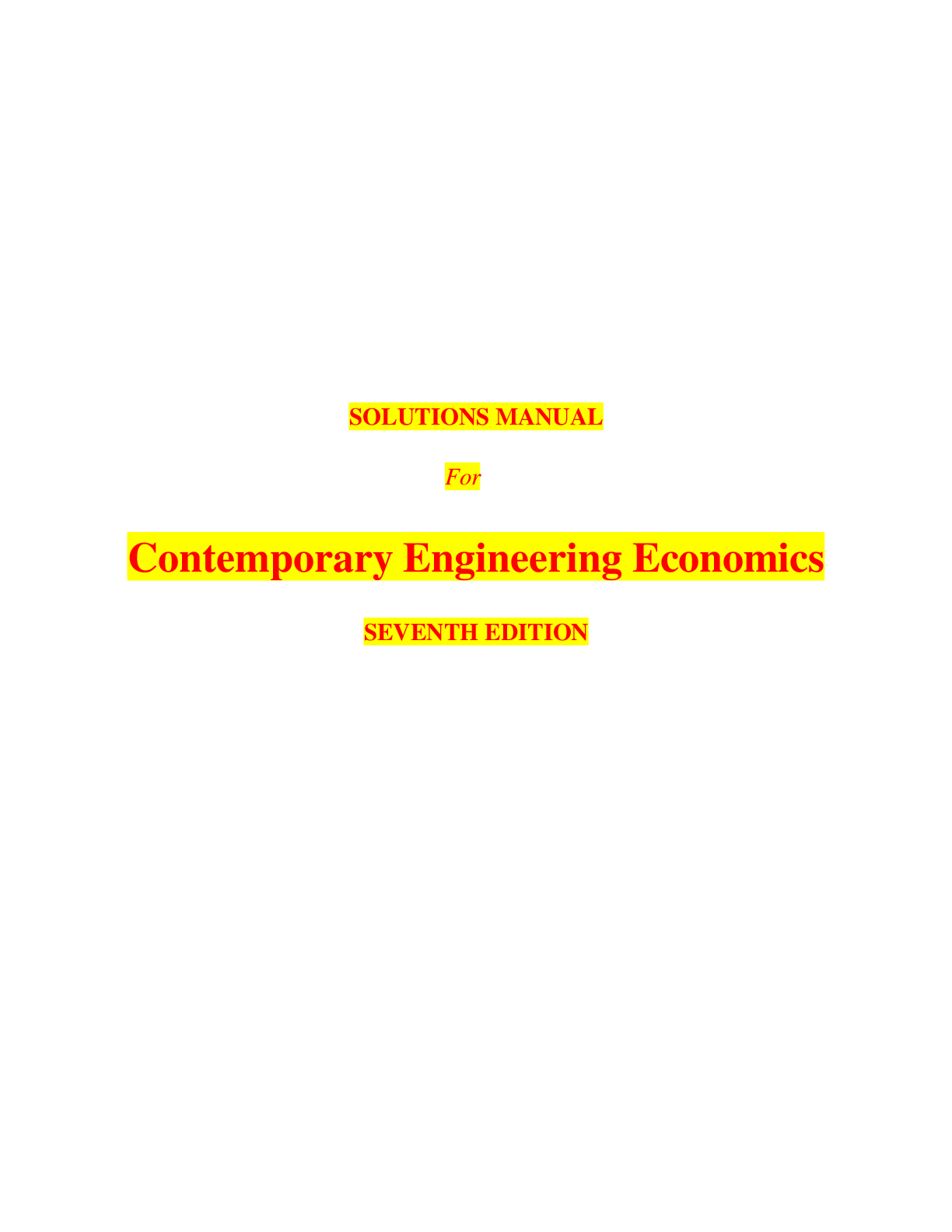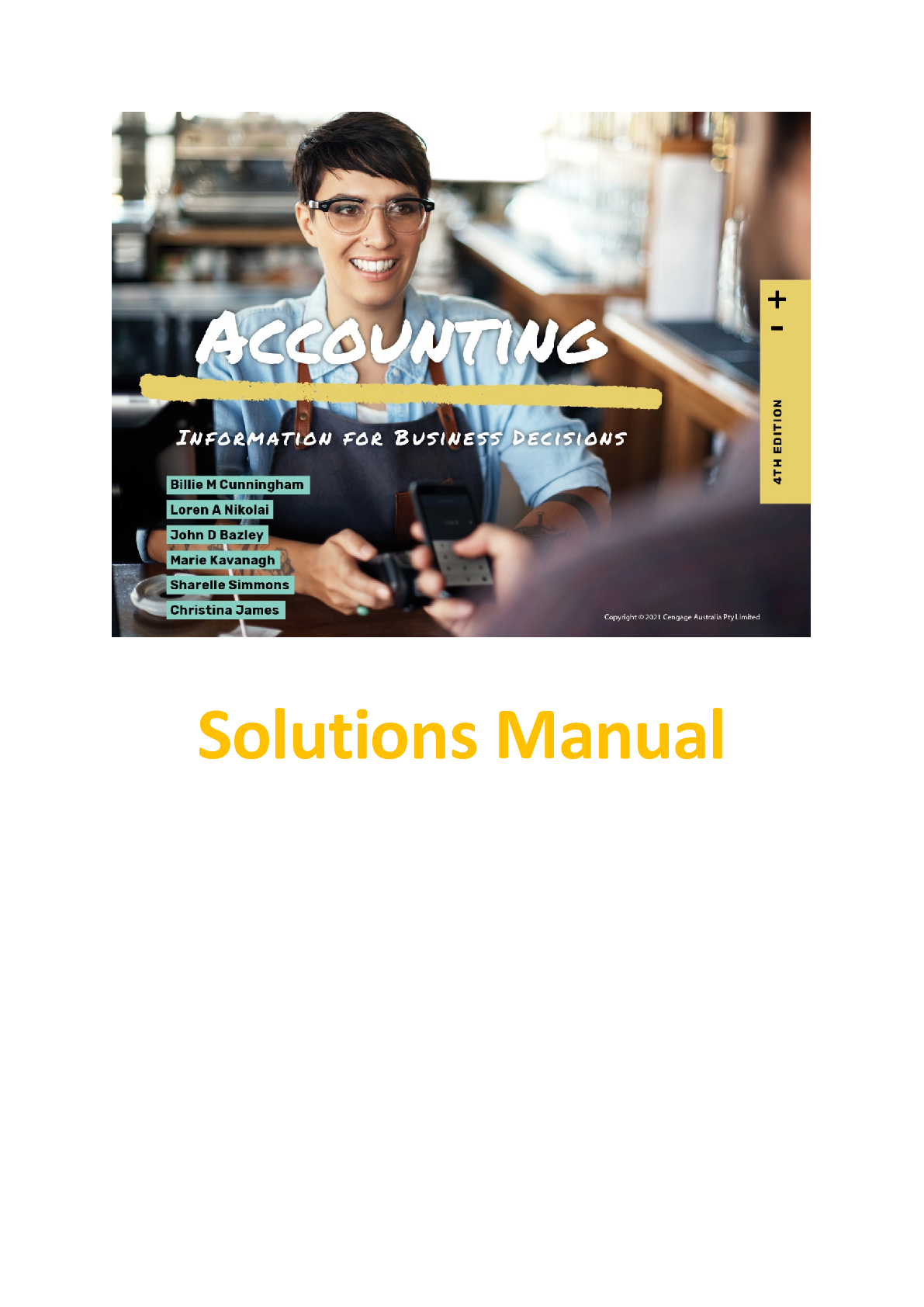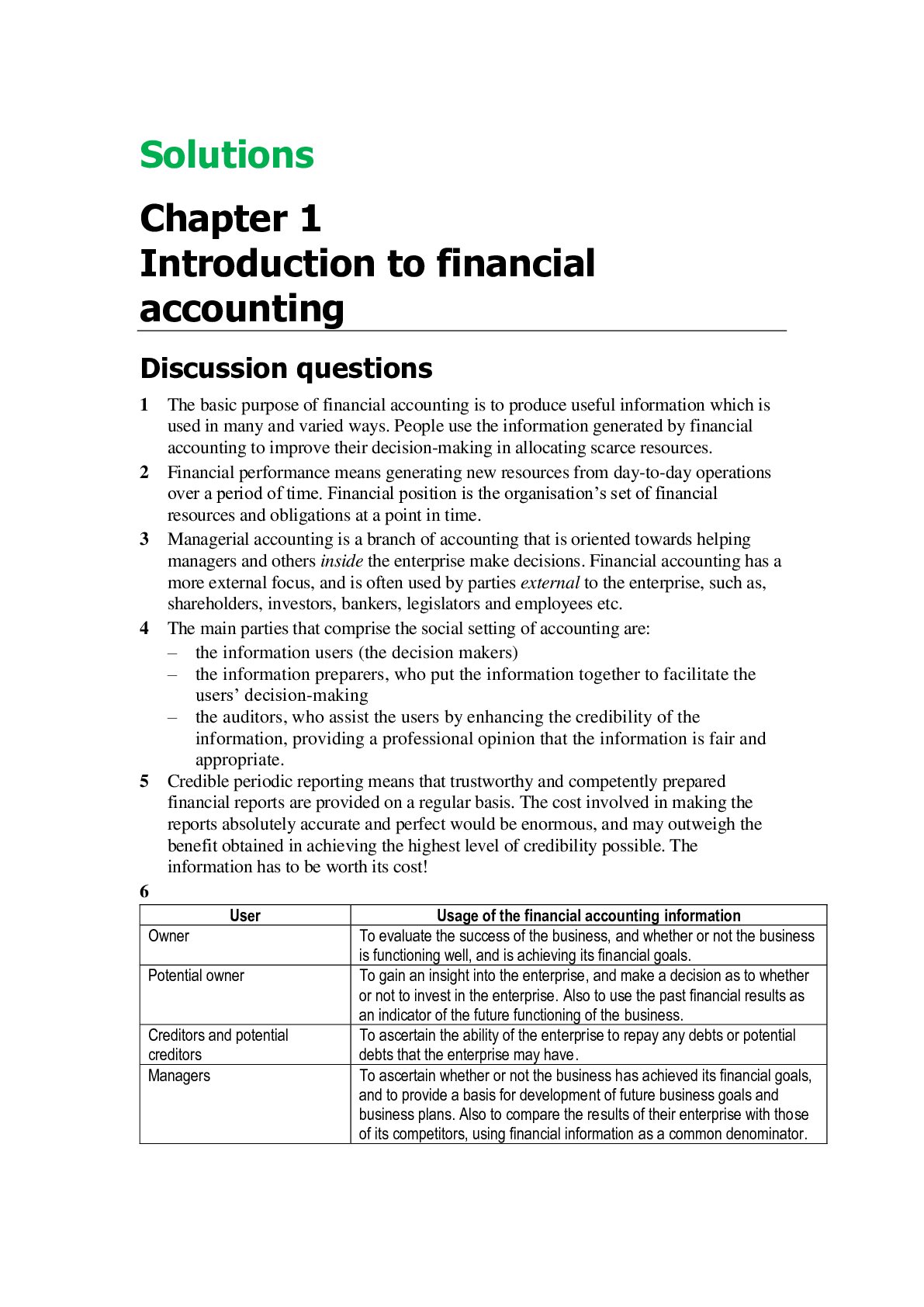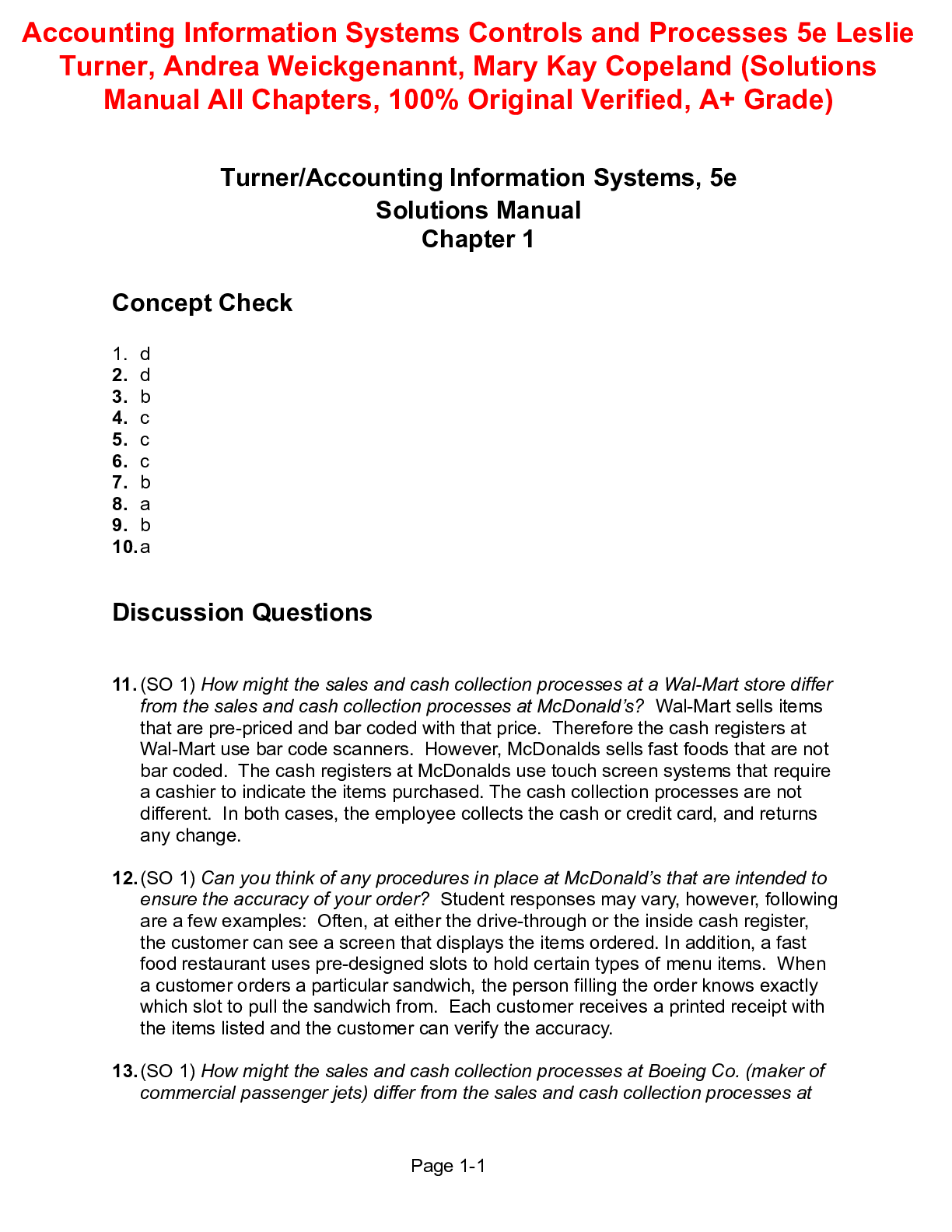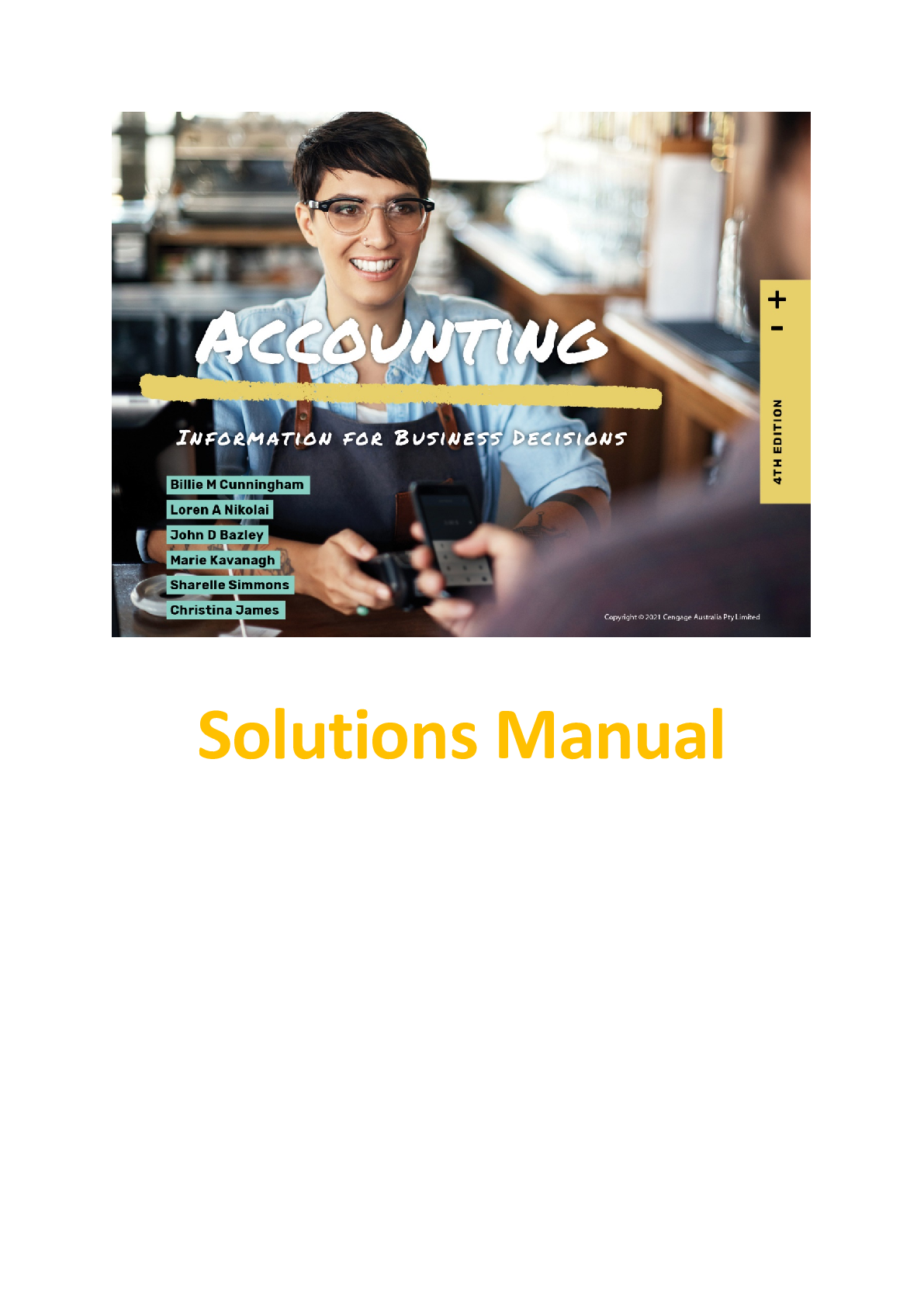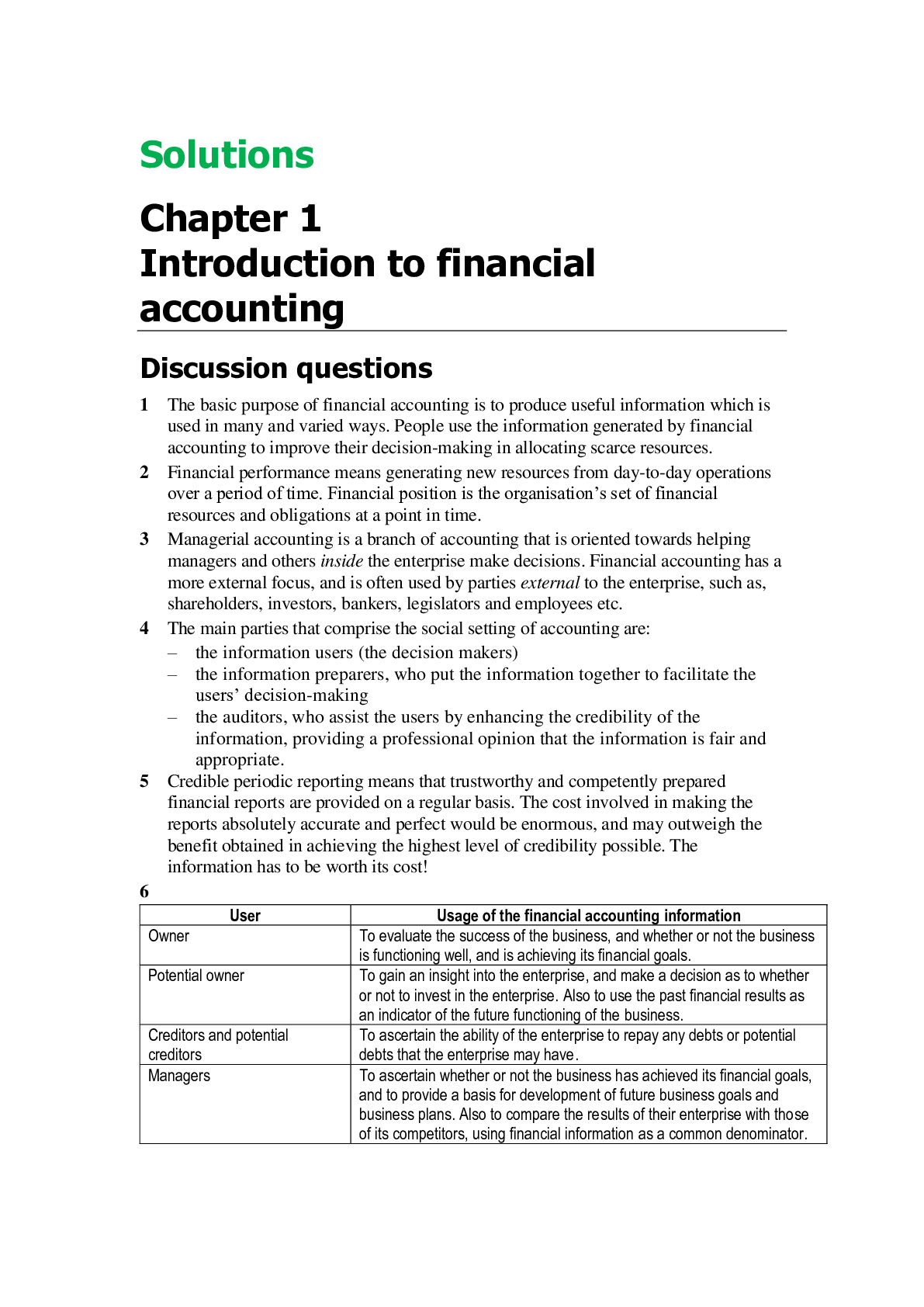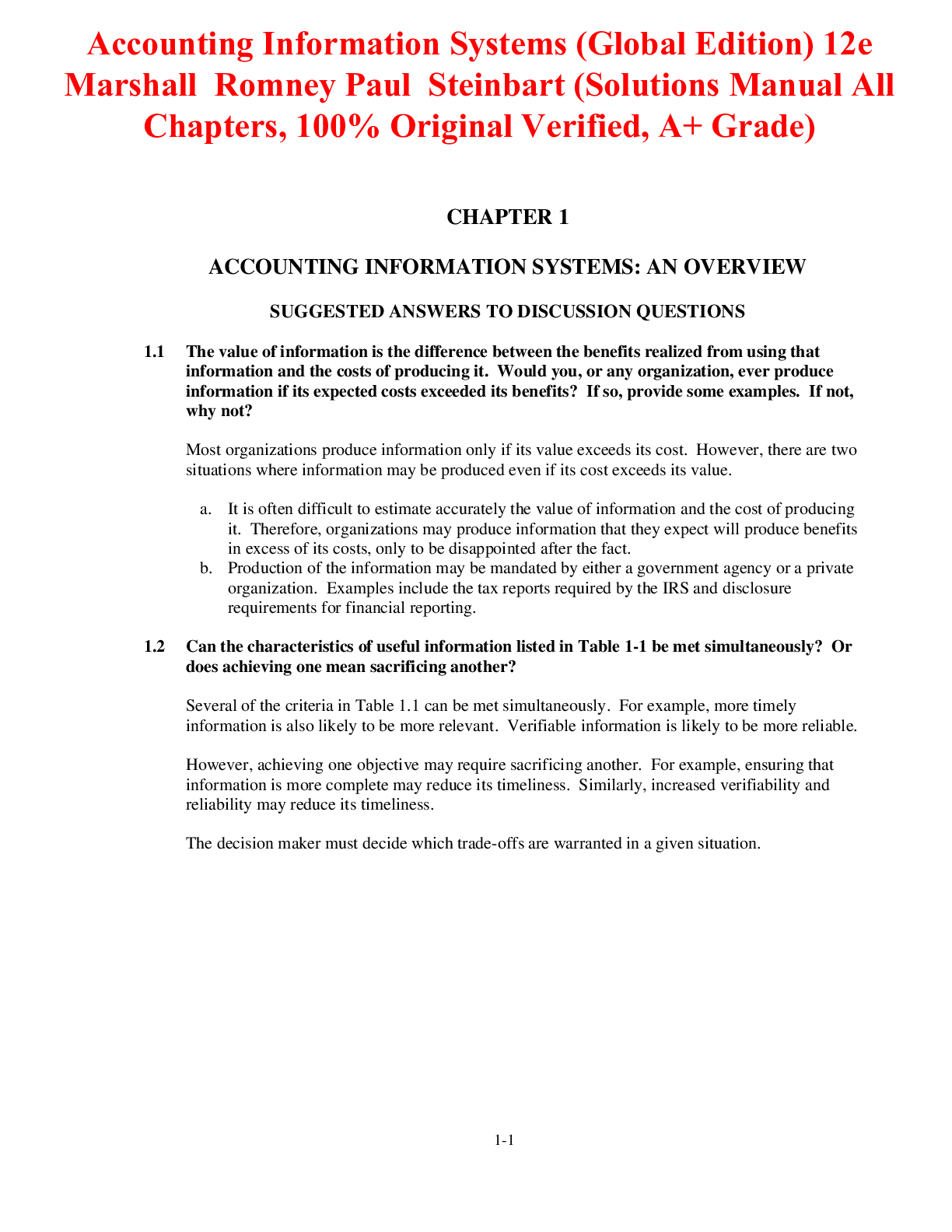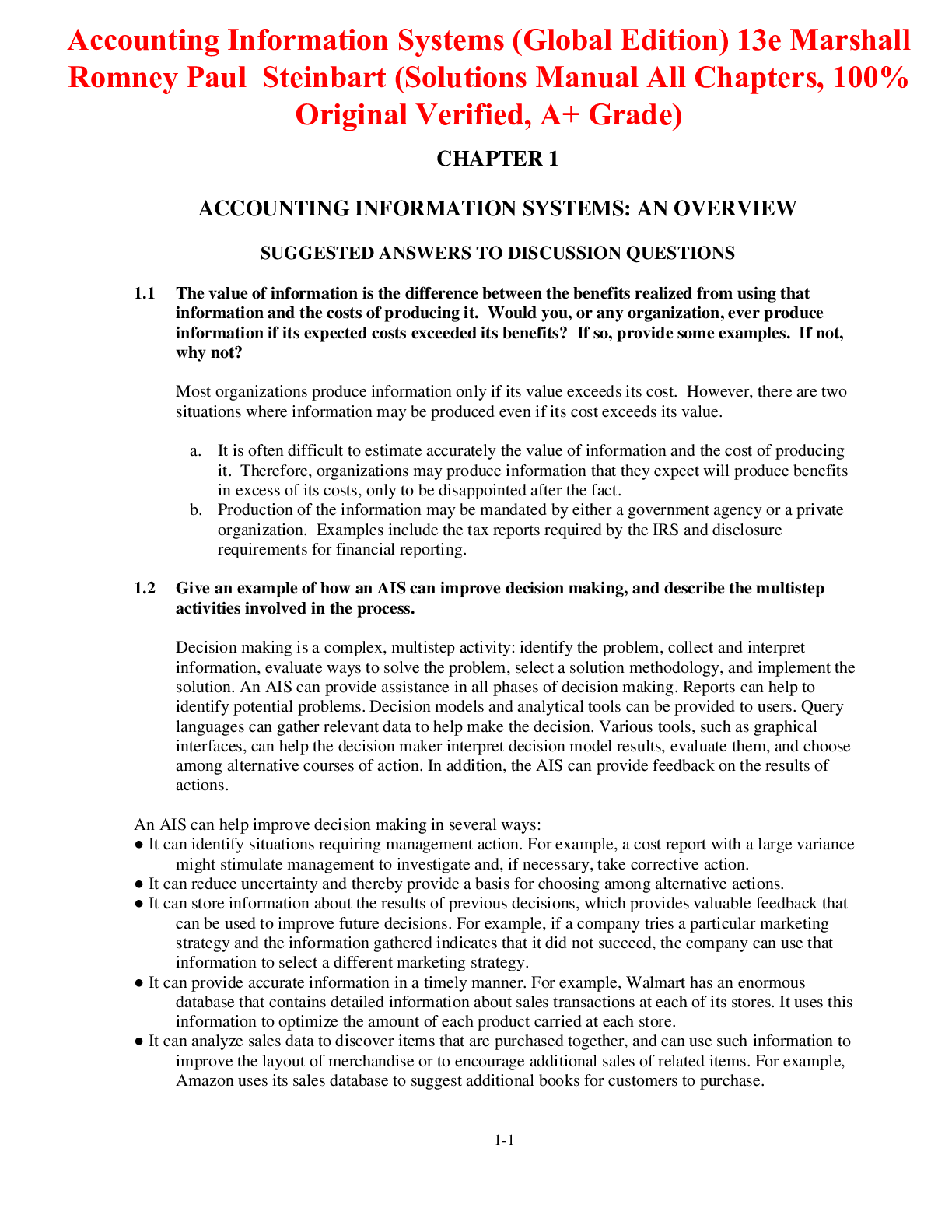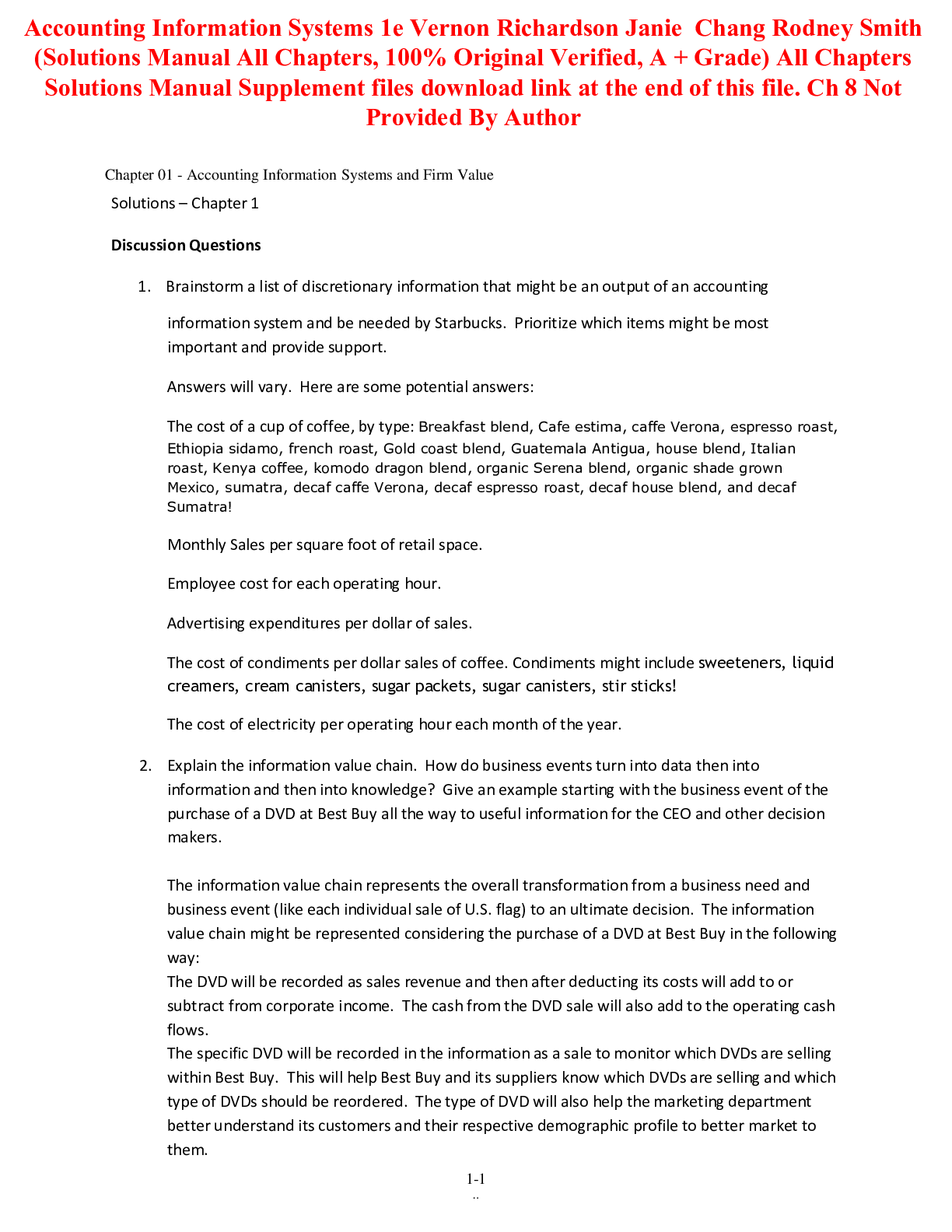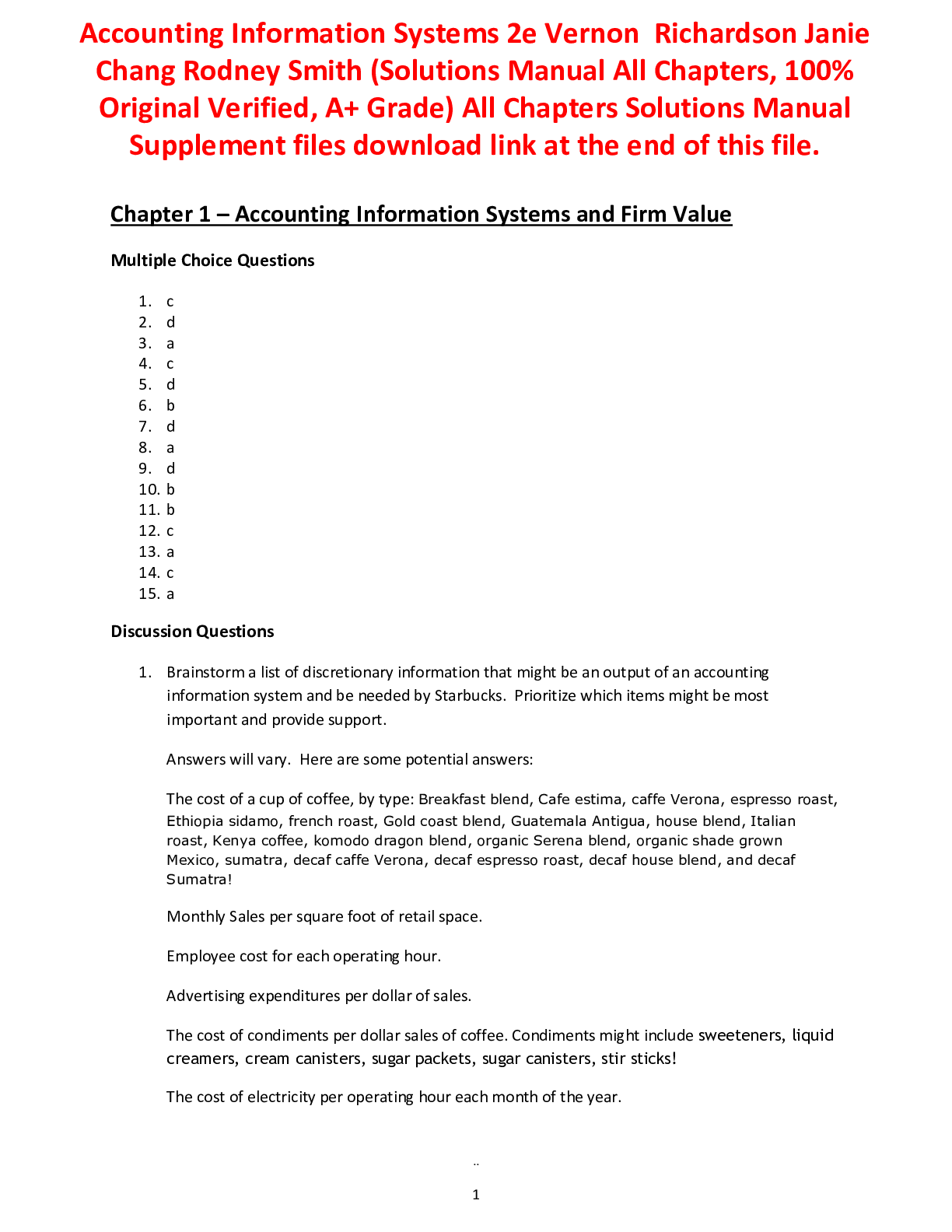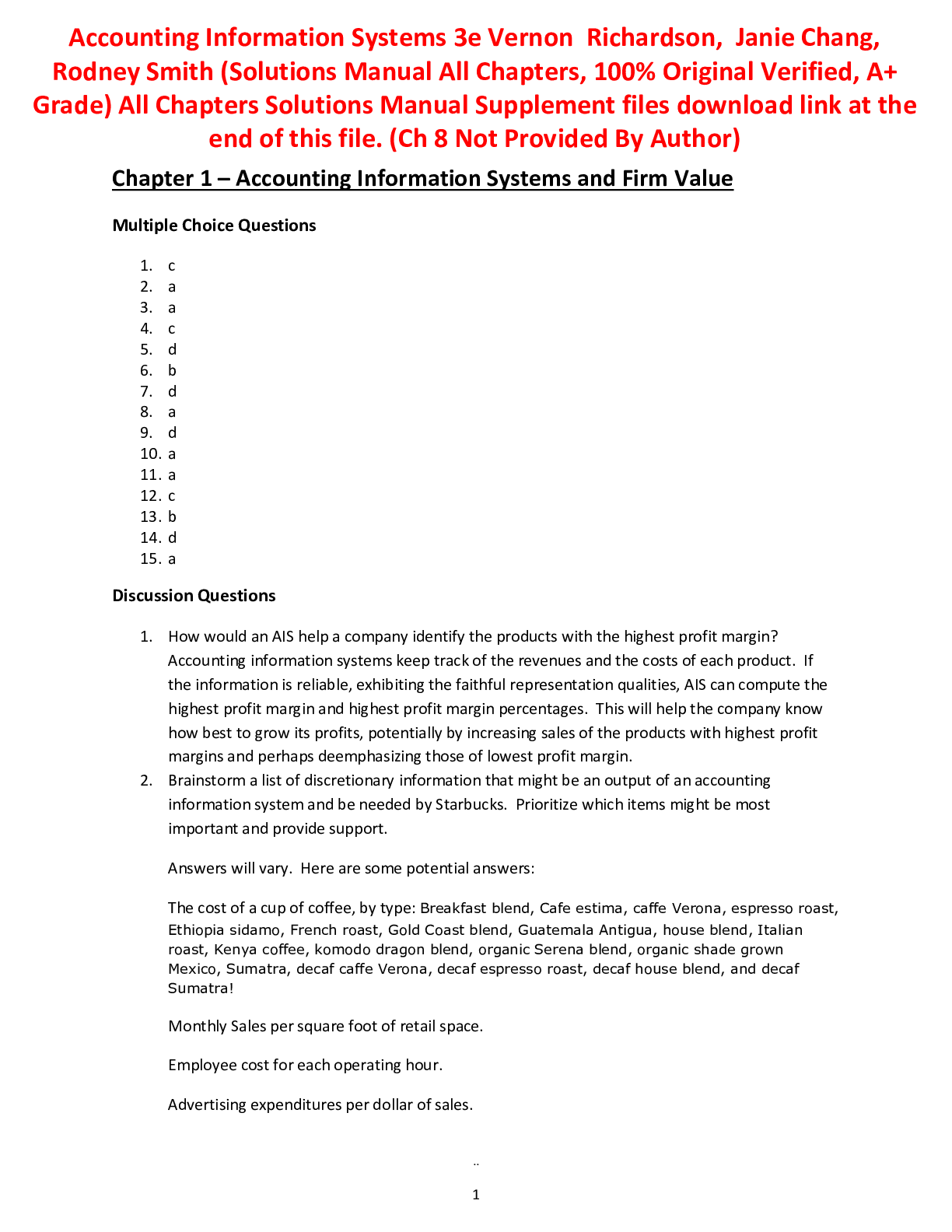Accounting > SOLUTIONS MANUAL > Solutions Manual For Accounting Information Systems The Crossroads of Accounting and IT 2e Donna Kay (All)
Solutions Manual For Accounting Information Systems The Crossroads of Accounting and IT 2e Donna Kay Ali Ovlia
Document Content and Description Below
Solutions Manual For Accounting Information Systems The Crossroads of Accounting and IT 2e Donna Kay Ali Ovlia-1.1 Refer to the chapter opener, Meet Business Intelligence. In your opinion, how can bus... iness intelligence create value using the accounting system? Students’ opinion may differ. However, their opinion should include: Increase profitability, improve customer relationship, increase sales by targeting the right customer category, and in general improving all aspects of business activities. 1.2 Refer to the chapter opener, Meet Business Intelligence. Discuss the importance of sales data in creating business intelligence for an organization. Business intelligence allows organization to continuously monitor their sales transaction. By monitoring sales, enterprise can fine-tune other business processes such as purchasing, production, advertising, and customer service. 1.3 Pick your favorite Accounting Insight from Chapter 1. Discuss why it’s your favorite. The answer to this question depends on the student selection and his/her reason for selecting it. 1.4 What are the modules in the baseline accounting system model? Discuss the purposes and transactions associated with each module. 1. Vendors. This module encapsulates all data and business processes related to vendors. The transactions associated with Vendors module are: Create purchase Order, Receive Items, and Enter Bills. 2. Customers. This module encapsulates all data and business processes related to customers. The processes associated with Customers module are: Create Invoice, and Receive Customer Payments. 3. Employees. This module encapsulates all data and business processes related to employees. The processes associated with Vendor module are: Enter Time and Calculate Payroll. 4. Banking. This module encapsulates all data and business processes related to organization banking. The processes associated with Banking module are: Pay Bills, Make Deposit, Pay Employees, and Pay Payroll Liabilities. 5. Financials. This module encapsulates all data and business processes related to the organization financials. The processes associated with Financial module are: Adjusting Entries, Correcting Entries, Closing, and ad-hoc financial activities. 6. Reports. This module encapsulates all data and business processes related to the accounting reports. The processes associated with Reports module are: Management Reports, Tax Reports, External Financial Reports, and Sustainability Reports. 1.5 Discuss how the features of a spreadsheet and a database are similar and how they are different. A spreadsheet shows rows and columns of a table and that is same as database table’s records and fields features. Actually, a spreadsheet row is a record and a column is a field in a database table 1.6 Discuss the potential risks if a company’s accounting system is not well secured. Unauthorized access to the accounting data and software could result in valuable information being stolen or damaged and virus or other malicious software damage accounting systems software. 1.7 Discuss the benefits of an integrated enterprise system. An integrated enterprise system allows data to be shared among various enterprise departments. For example, an advertising department can use data collected about sales to cluster customers into categories and target customers-categories with different adverting methods. 1.8 Discuss how value chain activities are related to accounting transaction cycles. The value chain facilitates coordination of activities with suppliers and customers, including purchasing and sales transactions. 1.9 Discuss the significance of information technology to the accounting professional. Today, most accounting systems are computerized systems. These accounting systems are installed on the enterprise computers and used on the enterprise internal networks as well as the Internet. To effectively work with computers and use accounting systems, accountants must know enough about computers and networks to be able to use computerized accounting systems. 1.10 Discuss problems that enterprises may experience with shadow data. Shadow data little or lack of documentation and lack or inadequate security and control are two major problems experienced by enterprises. [Show More]
Last updated: 4 months ago
Preview 5 out of 254 pages

Loading document previews ...
Buy this document to get the full access instantly
Instant Download Access after purchase
Buy NowInstant download
We Accept:

Reviews( 0 )
$15.50
Can't find what you want? Try our AI powered Search
Document information
Connected school, study & course
About the document
Uploaded On
Mar 27, 2025
Number of pages
254
Written in
Additional information
This document has been written for:
Uploaded
Mar 27, 2025
Downloads
0
Views
8

